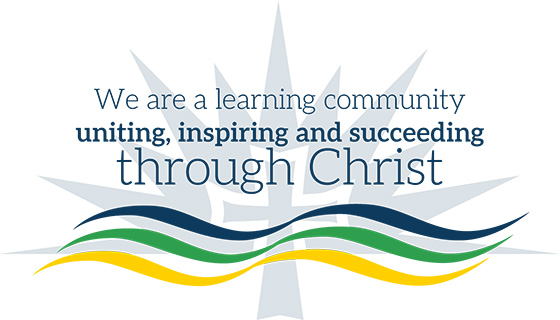At Unity College our spiritual identity is grounded by Celtic Christian spirituality. There is recognition that the divine is present in others. Early Celtic Christians shared their food, money, work, play and worship in communities which were always open to the people who lived around them. Wherever they lived, they saw Christ in their neighbour. They also had a responsibility to provide travellers with a safe and hospitable place to rest. They believed the more you gave a visitor then the more you received in return.
The Celts believed in a system whereby you have an obligation to give – receive and reciprocate. We can strive to: give freely; receive with real gratitude, and return a favour. To be truly welcoming to others implies welcoming each day with hope and happiness. Our Celtic blessings pray that goodness and harmony surround those in our community.
In the early Celtic Church a person who acted as a teacher, companion or spiritual guide was called an ‘Anam Cara’. Anam is the Gaelic word for soul and Cara is the word for friend. This insight calls us to value our true friendships as places of recognition and belonging. When you had an ‘Anam Cara’, your friendship cut across all convention and category – you were joined in an ancient eternal way with the friend of your soul.
Celtic spirituality has a deep sense of the mystery and presence of God in everything and everyone. It fosters a contemplative approach to all creation bringing with it healing and awareness. The lives of Bridget and Kevin, two renowned Celtic figures, reflected this contemplative approach. They believed we must have stillness to see the beauty of God in all of creation and to stop and listen to the needs of others. The Celtic Christians often worshipped out of doors and gathered around high crosses and holy wells. The circle of the Celtic Cross is a symbol of eternity that emphasizes the endlessness of God’s love as shown through Christ’s sacrifice on the cross. The Celtic tradition tells us that God has given us two books to read: the Bible and creation. We are reminded that to be ignorant of either is to be ignorant of their author.
For the Celtic person the new day was lived amidst nature and nature was just not matter, it was a spiritual place for them. Since the Celts were a farming people and dependent on the changing seasons for their survival and livelihood, the world of nature was both a presence and a companion. Nature nourished them; it was here that they felt their deepest belonging and attachment and this pure gift from God required respect and attention. They believed they had inherited the earth and that they were in harmony with creation. The Celts’ relationship with nature was a constant reminder of a God who called them to honour and to remember its past history and was the voice of their future. The four elements – wind, fire, earth and water – were understood as agents of God’s blessings and means by which we can offer blessing and worship back to God. We are reminded that creation was a reflection of God’s sense of beauty and it was extremely sacred for them.

© Brisbane Catholic Education, Unity College (2024)